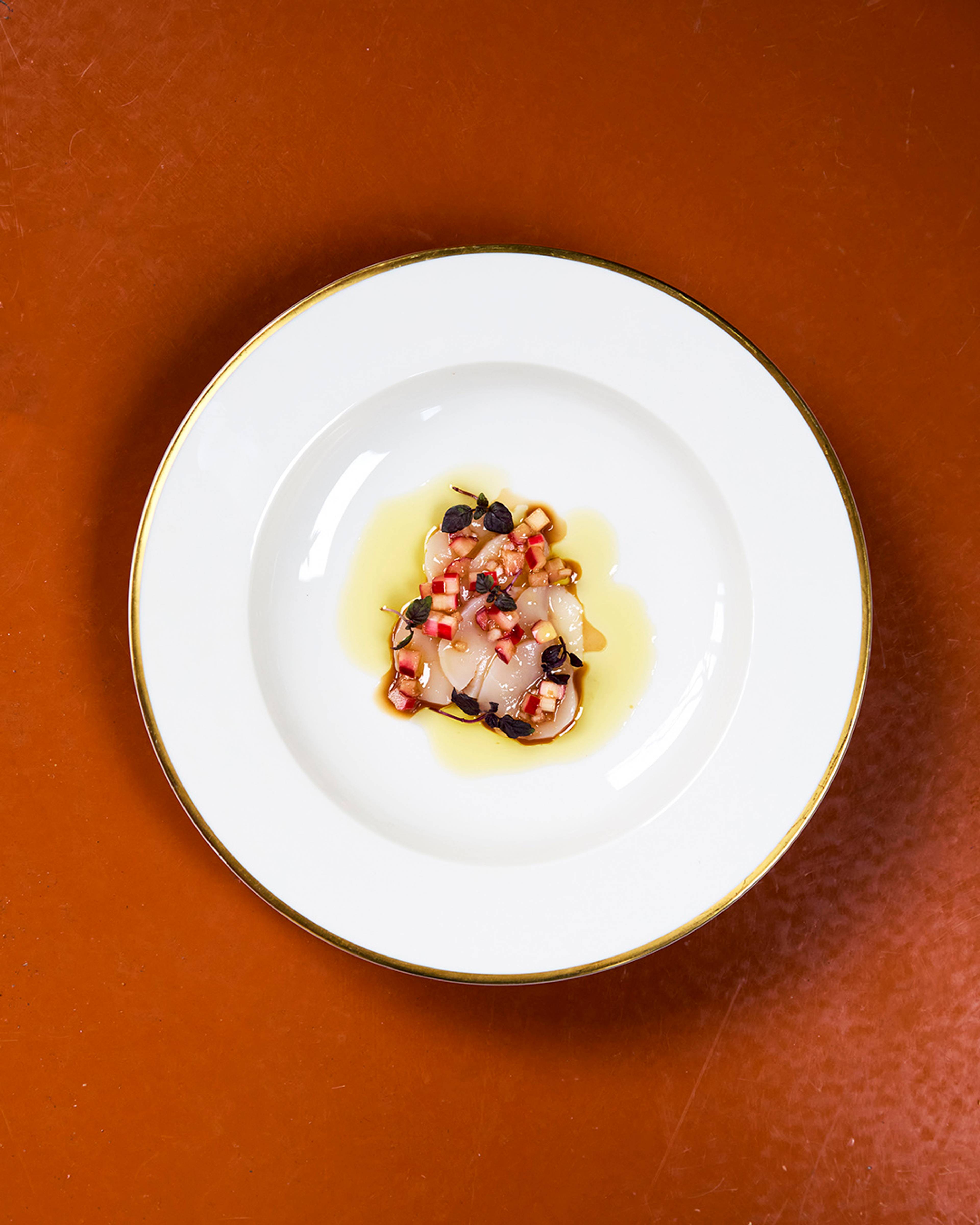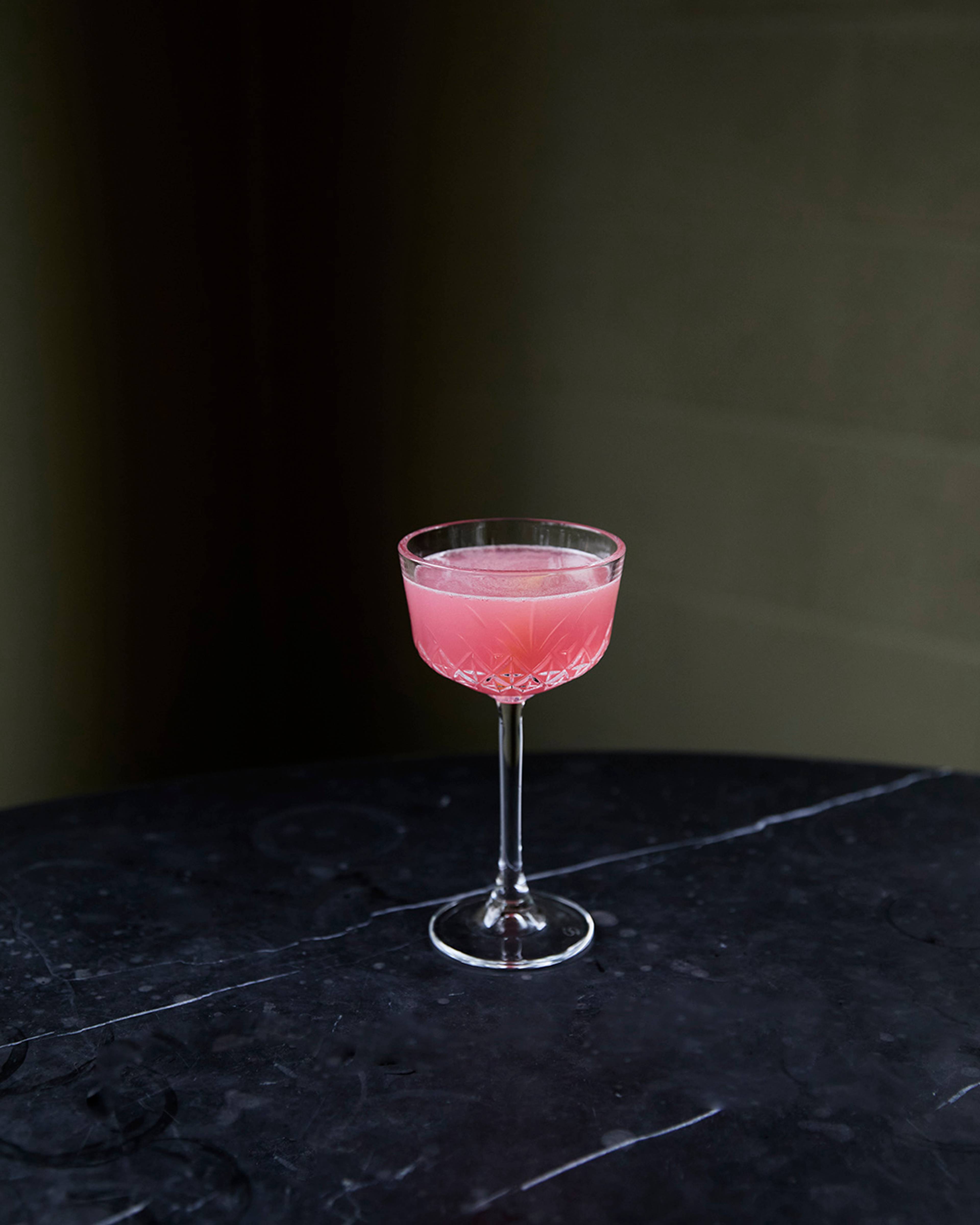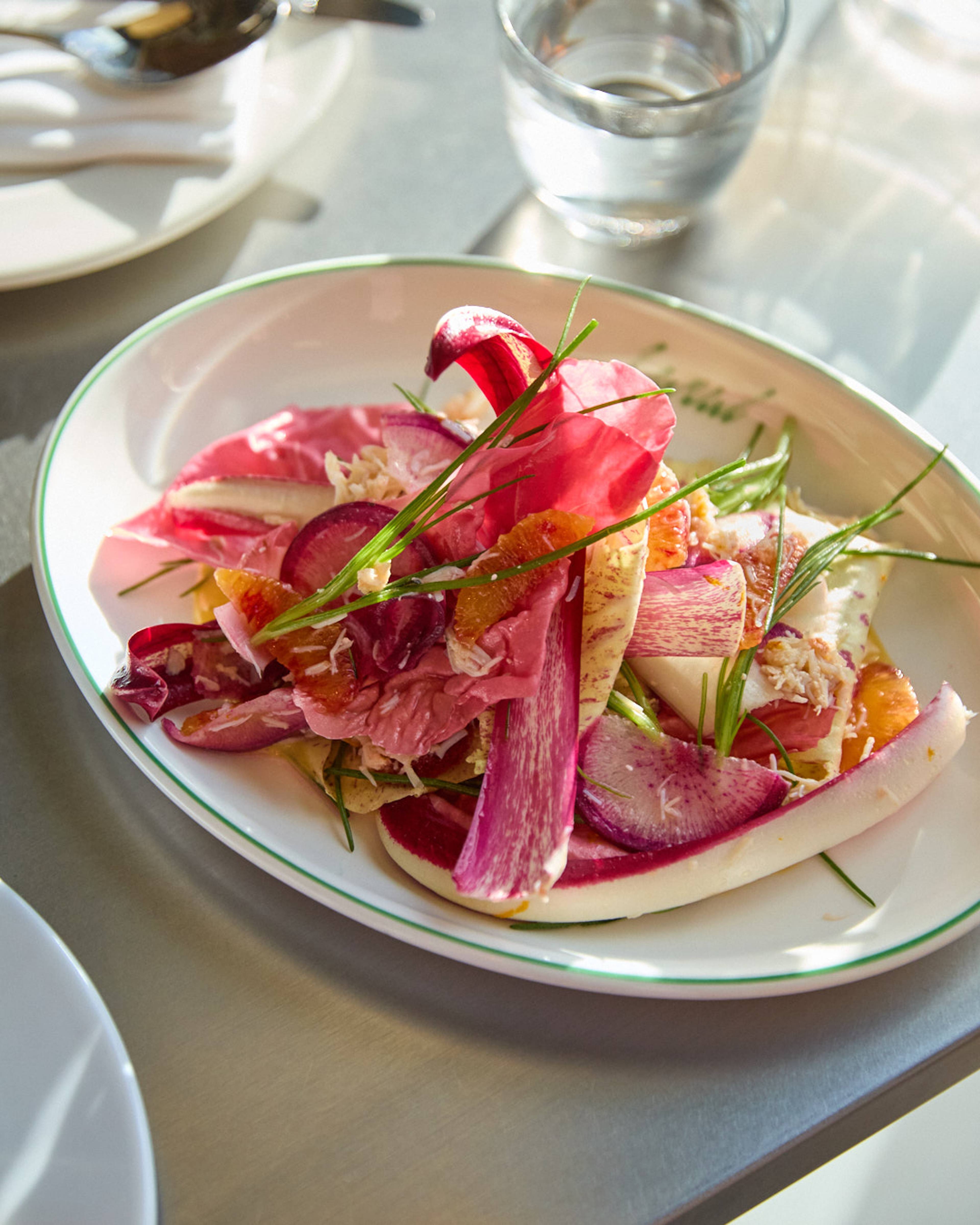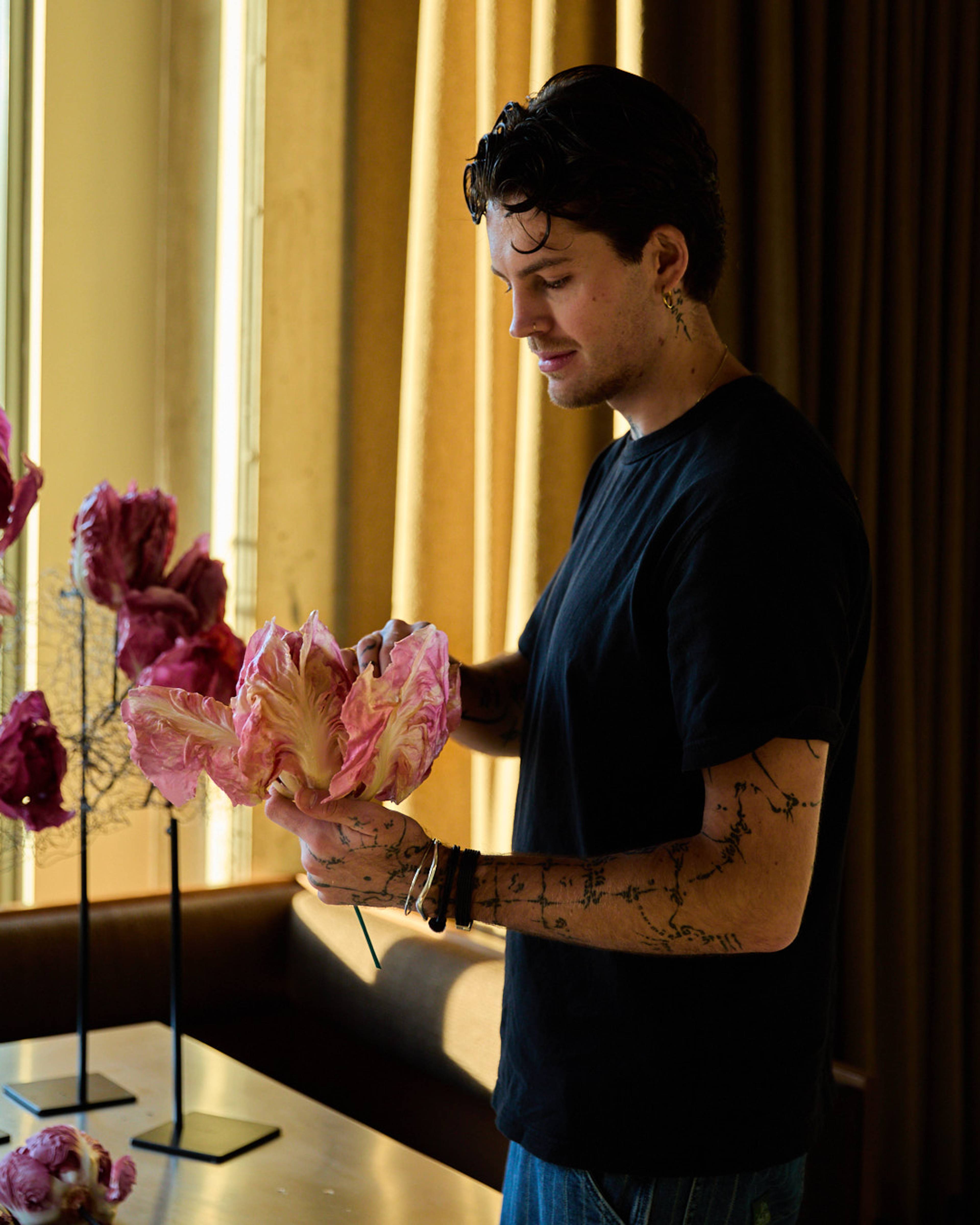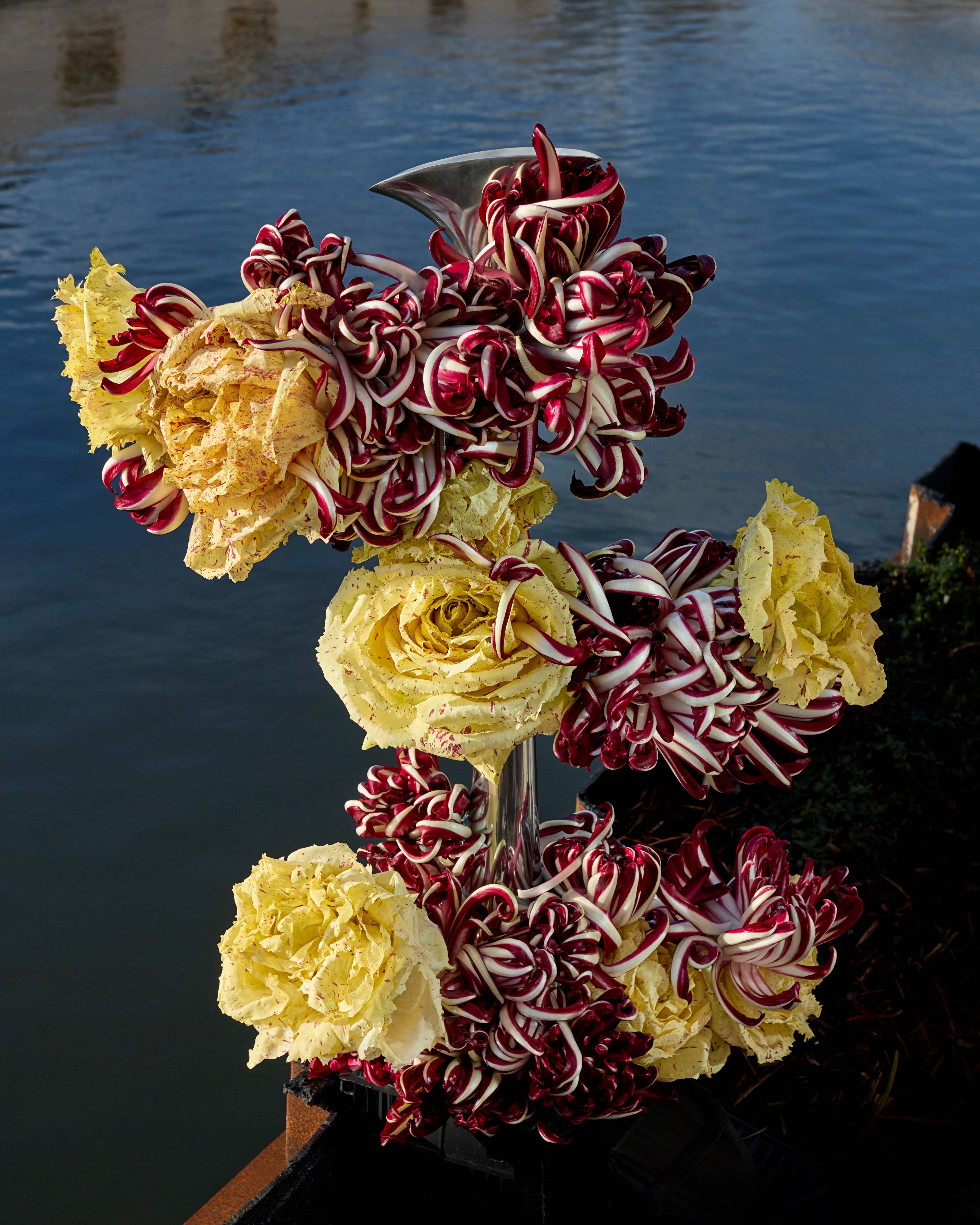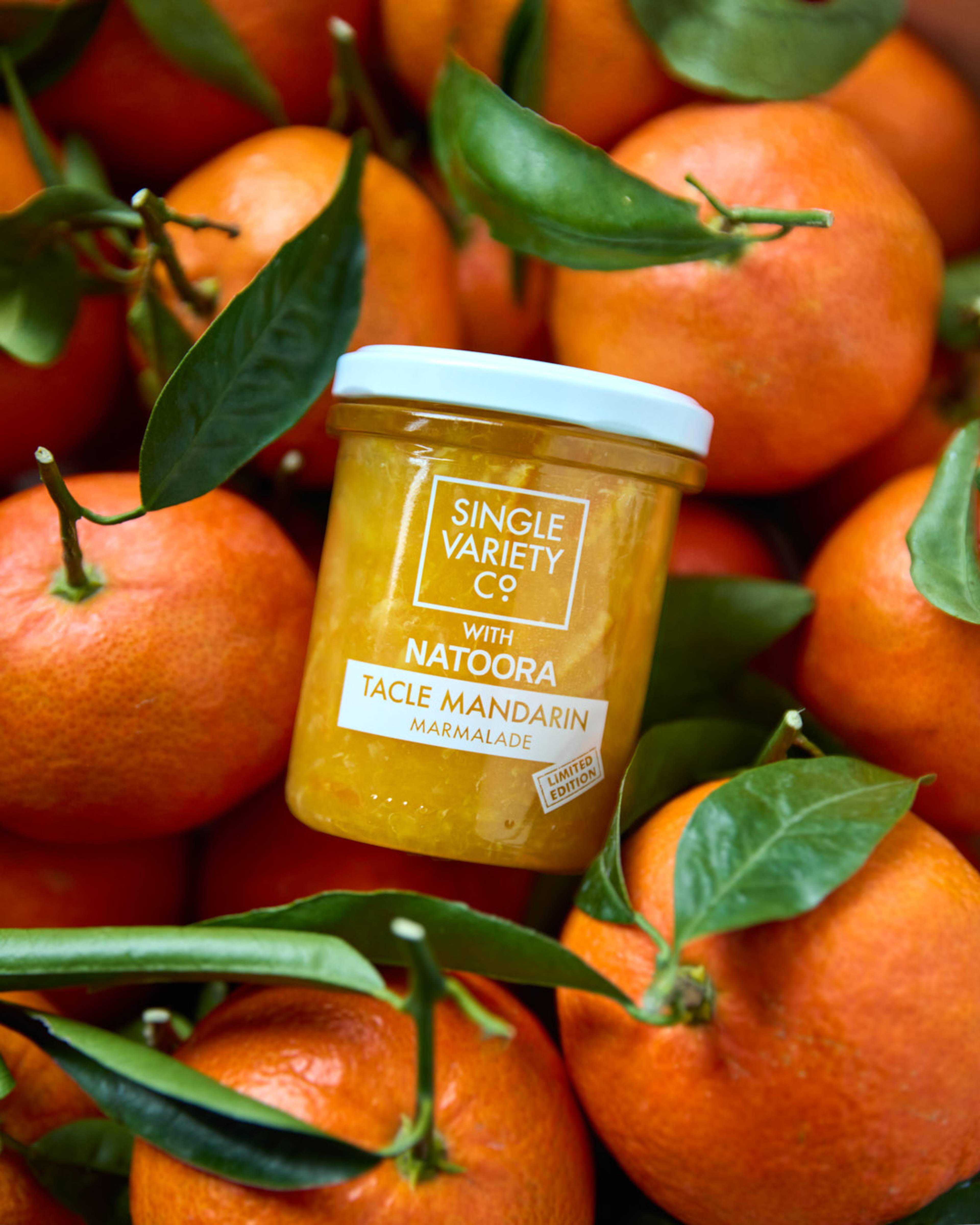2025 Farm Fund Grant
This year’s Farm Fund is a commitment to transformation and opportunity. We’re investing in projects that reimagine what's possible, and we’re clearing the path for the next generation of growers. From resilient seed systems and ecosystem-driven practices to training programmes for new farmers, we’re championing change where it matters.
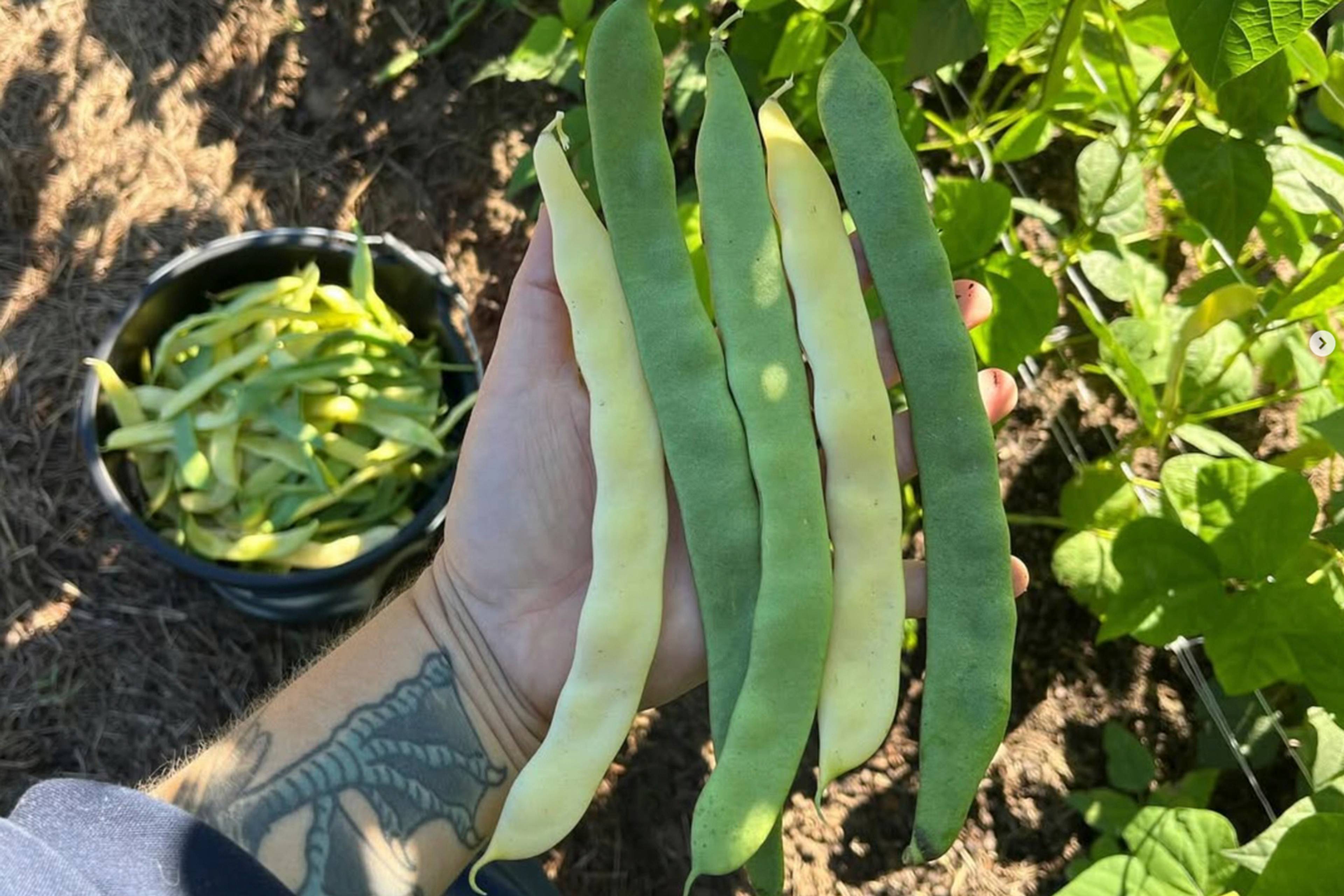
Fat Cat Farm (Farm Fund Grantees 2025) in Poplarville, Mississippi.
In the year 2024-2025, we raised an incredible $100,000. This is all thanks to the support of our community who joined us for events like our biodiversity panel in Copenhagen, drank bottles of seasonal MOMO Kombucha such as Blood Orange and Forced Rhubarb and purchased our Leafy Citrus Boxes. These funds mean we’ve backed more young growers than ever before.
We made some bold changes, too. First, the grants: we offered a single $30,000 Transformation Grant to facilitate seismic, lasting change on one established project, along with four $15,000 and one $8,000 Resilience Grants to help reinforce young farmers at ground level. Second, our reach: we expanded to Australia and were thrilled to receive applications from its phenomenal growing community.
The Farm Fund grant is split between six growing projects altogether.
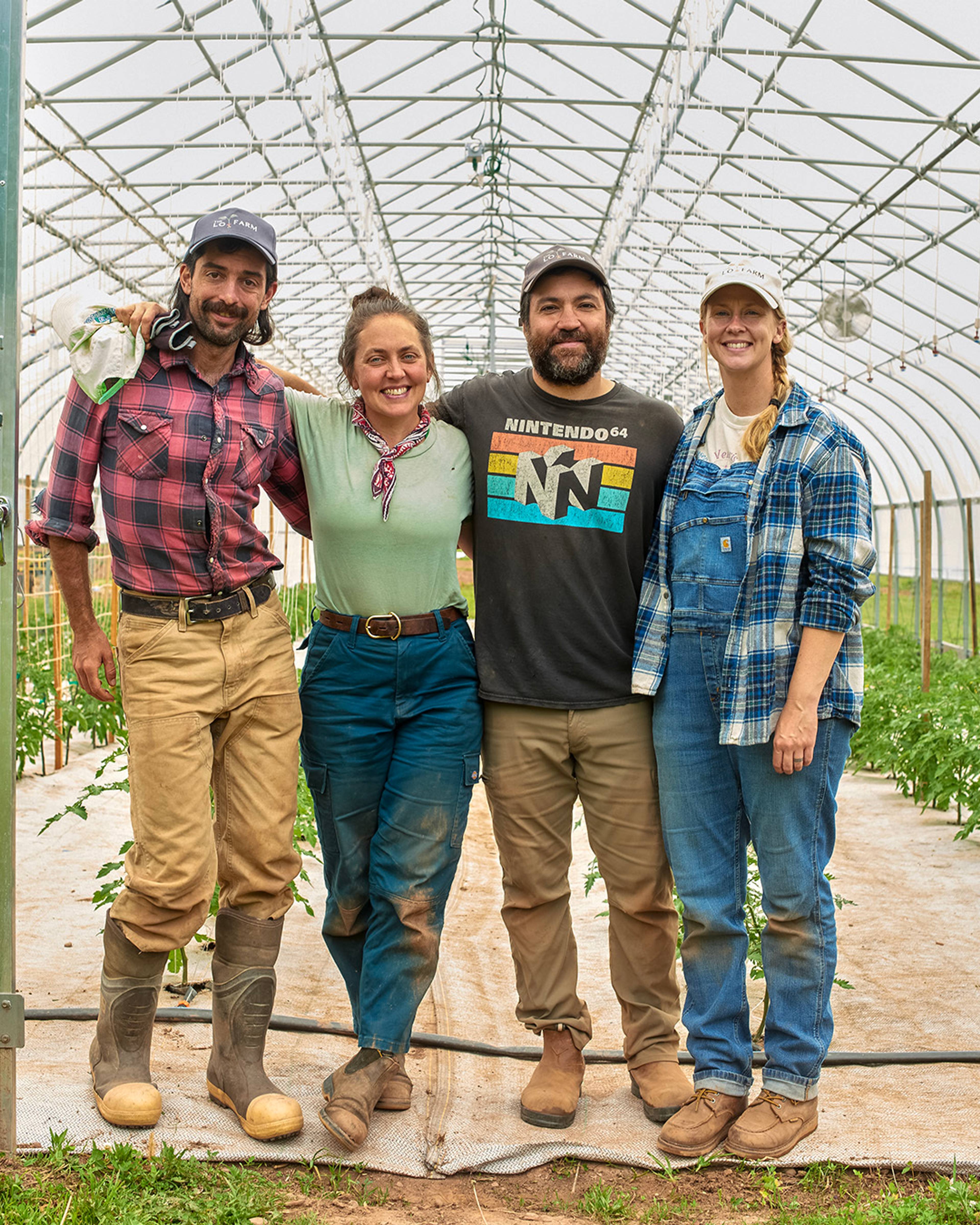
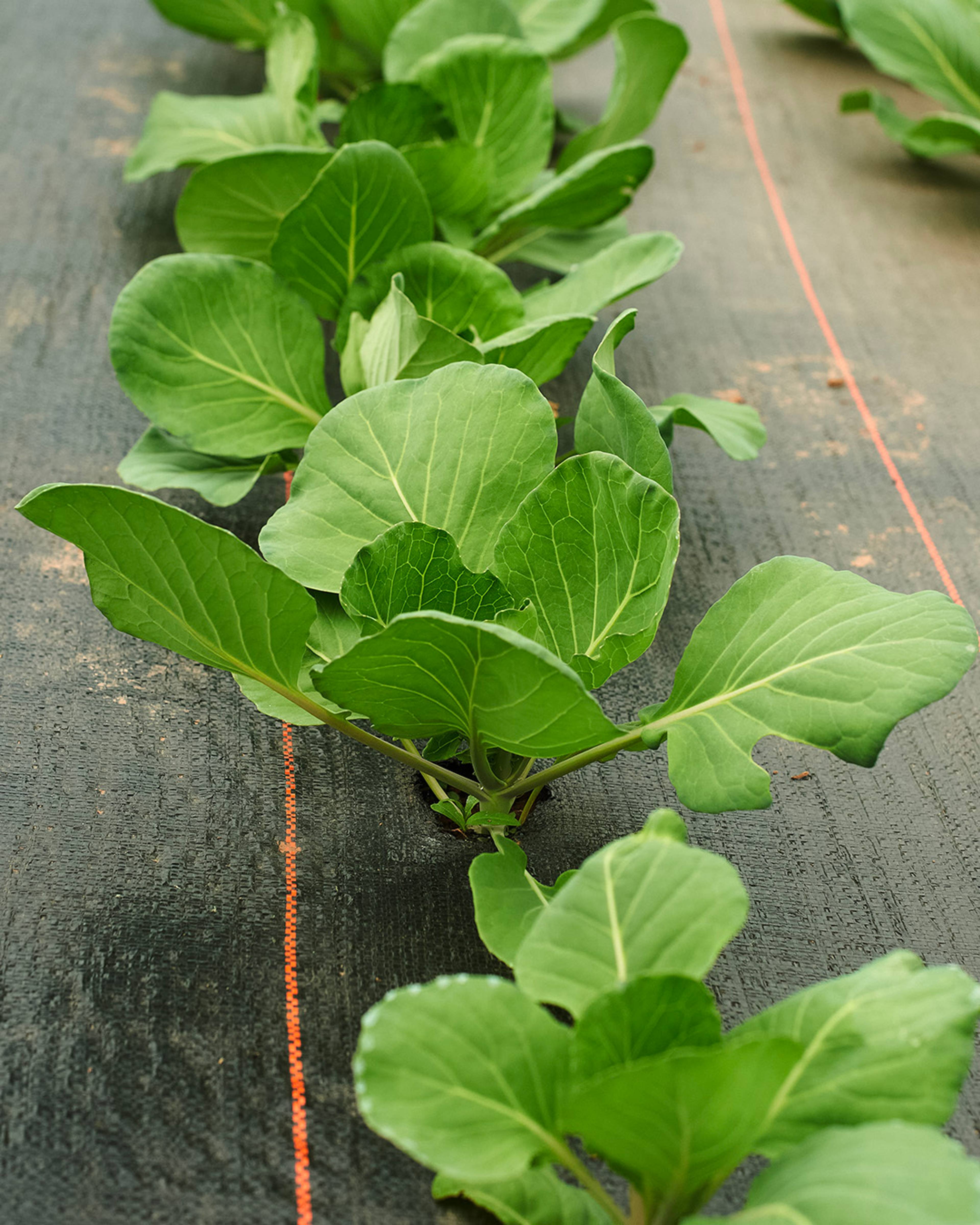
THE LO FARM
Catskill, New York
Grant: $30,000 - Transformation
Leah, David, and Orlando of The Lo Farm are reshaping organic farming in the U.S. from their base in Catskill, New York. They’re pioneering a low-input, replicable model of organic vegetable production, grounded in regenerative principles and measurable outcomes.
Their entry into farming combines passion and purpose. Leah’s background in Economics exposed the disconnect between economic systems and ecological health. “I fell head over heels in love with farming, relishing the tangible fruits of hard labour as well as the impact of feeding my community,” she says.
David, an agronomist, now advises on soil health across the Hudson Valley.
“I saw that our world system was broken, and the solutions to fix it would have to come from the ground up.”
They began farming on leased land in New Paltz in January 2020 and moved to their own land the next year, building a Certified Organic operation. Now, with help from the Natoora Farm Fund Transformation Grant, they’re taking a radical next step: transitioning from standard organic methods to a JADAM-based system. JADAM, developed in South Korea, is a peer-to-peer, ultra-low-cost farming model that emphasizes microbial fertility, homemade pest control, and self-reliance over industrial inputs. For The Lo Farm, it tackles rising organic costs and challenges the environmental contradictions within organic certification.
“Our project seeks to move our farm from its current model – a fairly typical organic, diversified vegetable production system, with its heavy reliance on off-farm inputs – to a JADAM production system that will allow us to produce more of our fertility and pest resistance on-farm.”
They’ll build a farm-scale JADAM input facility, with fermentation tanks and a precision irrigation system using real-time soil moisture sensors. This will build on existing research being performed at the Lo Farm through a USDA SARE (Sustainable Agriculture Research and Education) grant. These innovations will reduce water use, costs, and labour while boosting yield and resilience.
At The Lo Farm, regeneration is measured. Over two years, Leah and David will compare JADAM-treated crops with standard organic ones - tracking pest pressure, soil health, yield, and flavour.
“We are confident the system can deliver results that will help The Lo Farm thrive – producing high-quality vegetables, giving our farmers financial stability... and reducing the psychological stress of having our incomes so dependent on environmental factors that have heretofore been out of our control.”
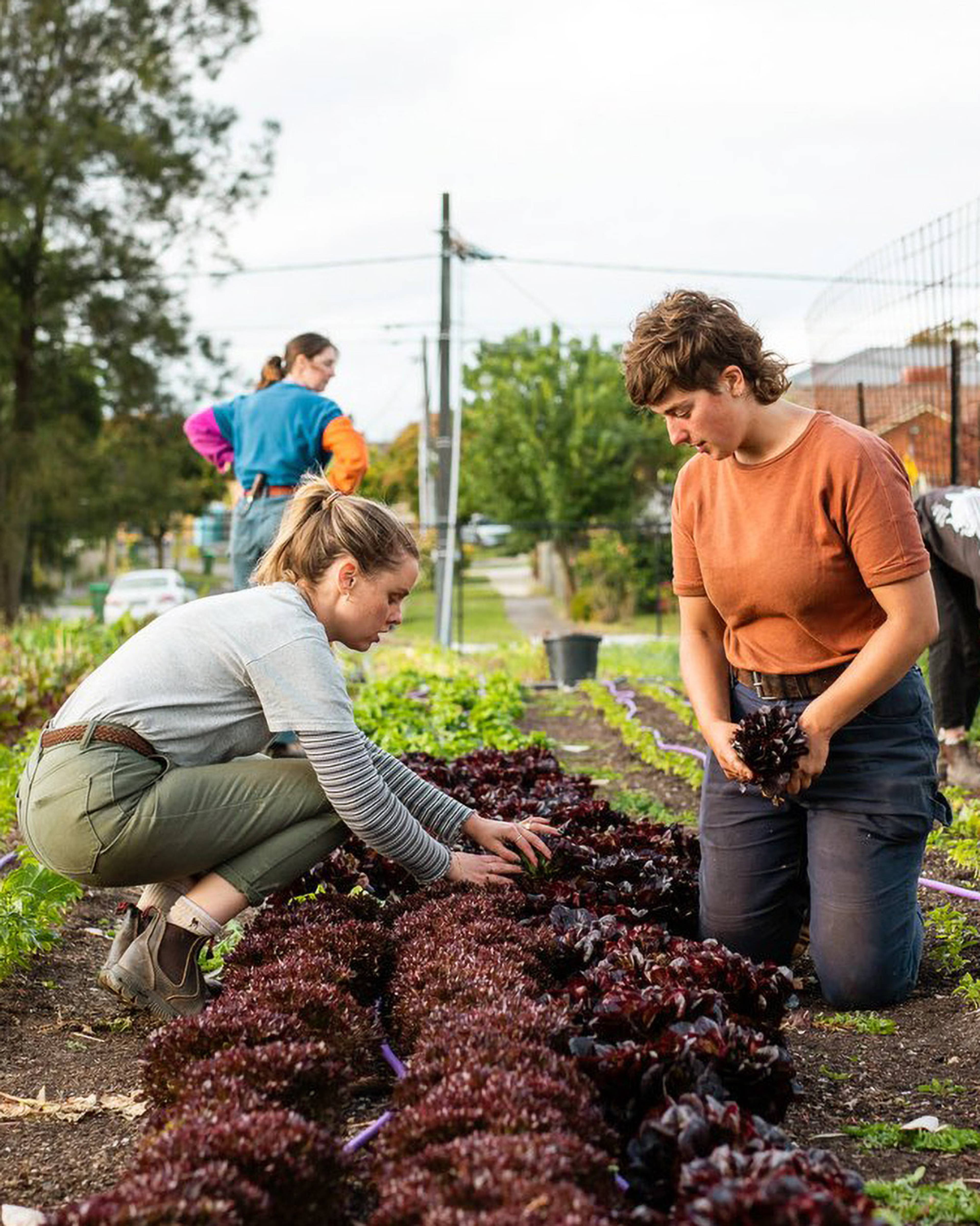
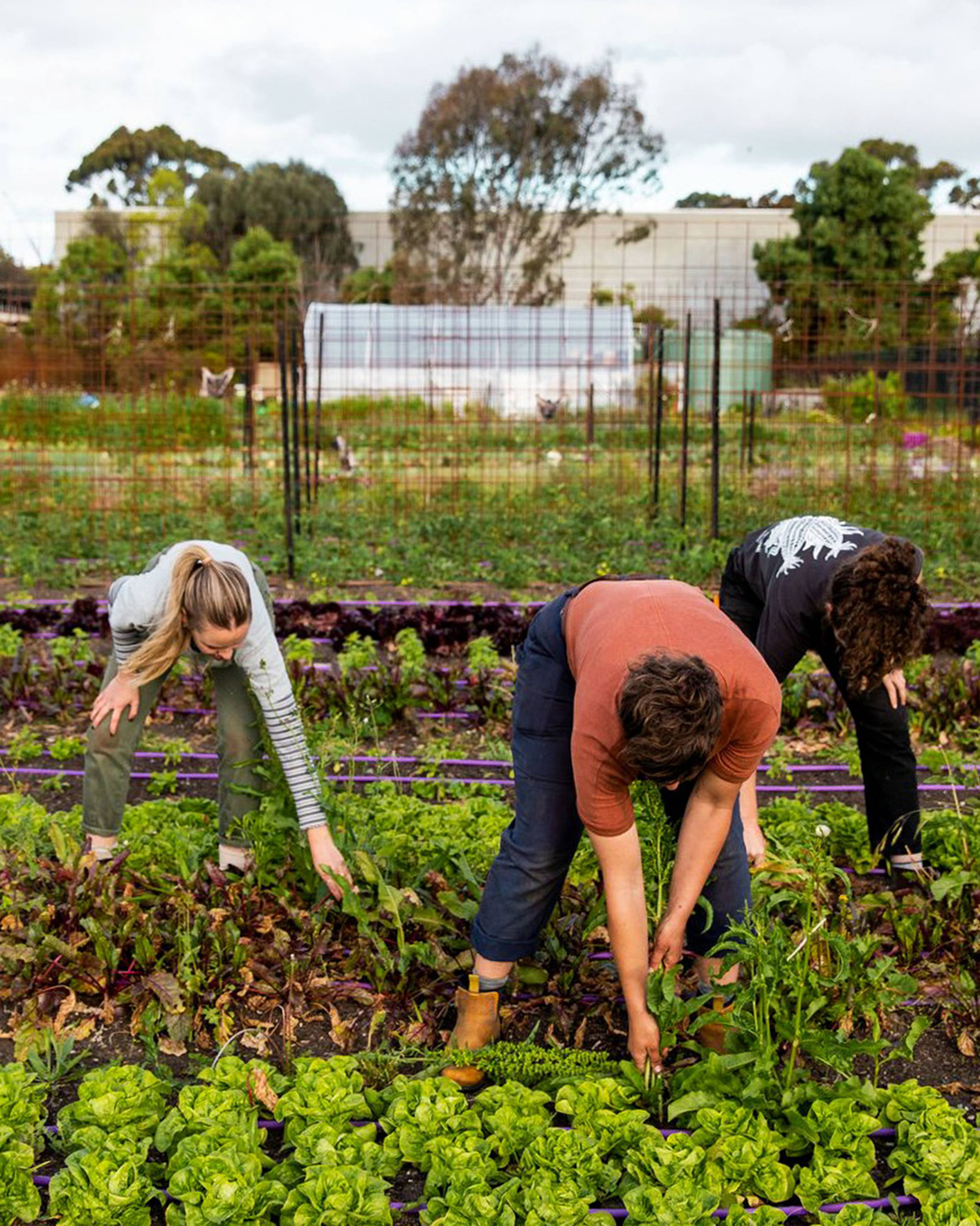
FARM RAISER
Melbourne, Australia
Grant: $15,000
Farm Raiser, a not-for-profit urban farm in Bellfield, Melbourne, is launching a year-long incubator programme to train the next generation of small-scale, community-focused farmers. Run by Charlotte and Eve, the farm promotes inclusive food education, community wellbeing, and agroecological innovation.
Founded on the belief that food systems must be just, inclusive and ecologically sound, Farm Raiser produces high-quality vegetables for local residents, much of it as food relief, and runs vocational training for students with disabilities. Their new programme, with support from Farm Fund, offers a paid traineeship to aspiring farmers from historically underrepresented backgrounds.
The programme addresses education, inclusion, and accessible farming scale, tackling the sector’s ageing workforce. The trainee will receive hands-on instruction in all aspects of running a small agroecological farm, from soil management and growing to retail, marketing and social enterprise operations.
“There’s a real gap in training that teaches people how to grow good food and run a socially conscious business. This is the kind of farming we need if we want a resilient food system.”
The grant will fund trainee wages, while Farm Raiser covers additional costs to ensure year-round continuity. Increased labour will boost growing capacity by at least 30%, expanding food relief and revenue. Produce is sold locally via veggie boxes, shops, restaurants, and discounted to residents.
Environmentally, the farm uses low-input, solar-powered methods including composting, minimal till, and biodiversity support. “We want to change the culture of farming from blokey to for everyone,” Eve says.
By year’s end, Farm Raiser aims to show a replicable model for community-rooted farmer training.
“We believe in a food system where land, labour and love are shared – and this programme is a step toward making that future real.”
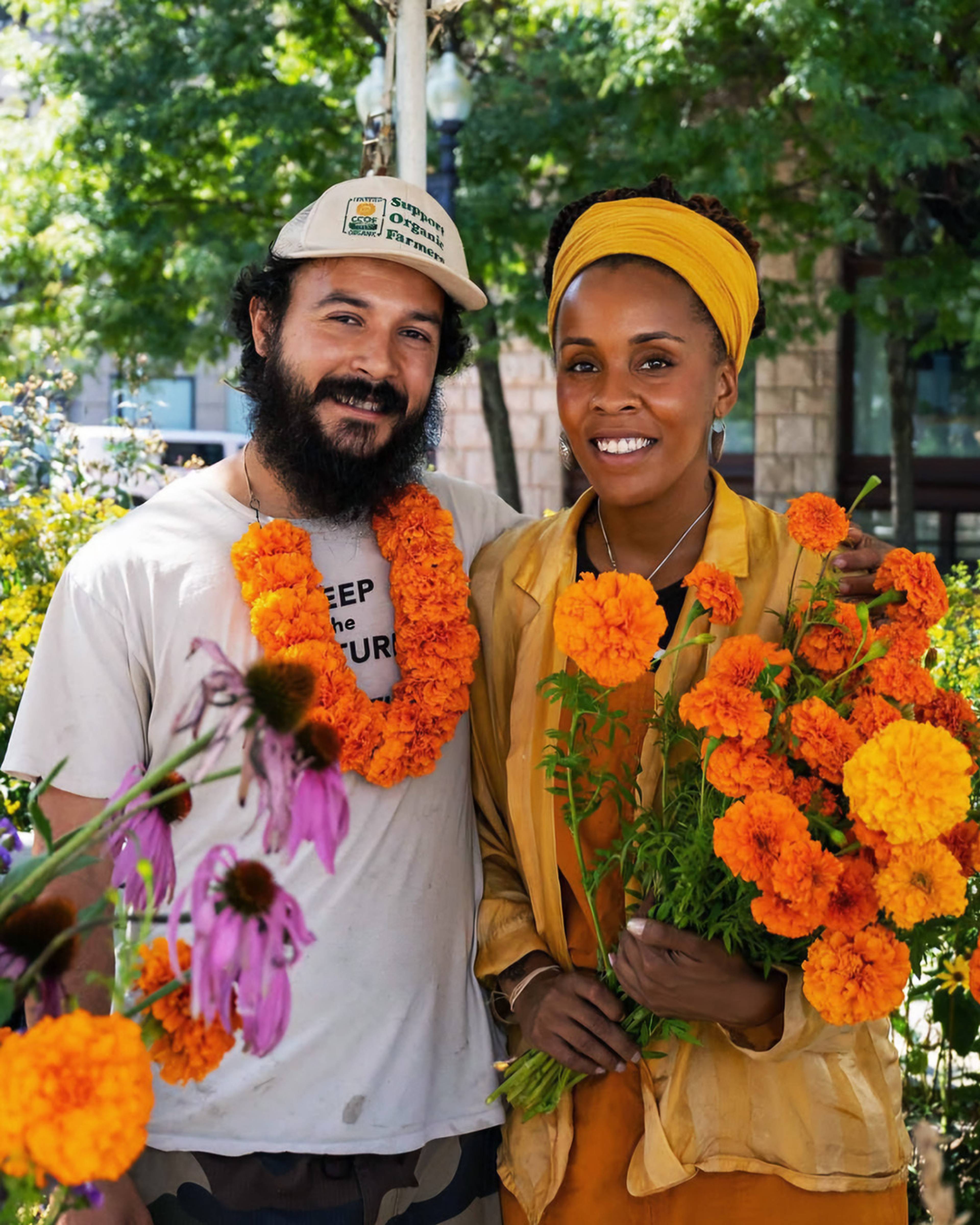
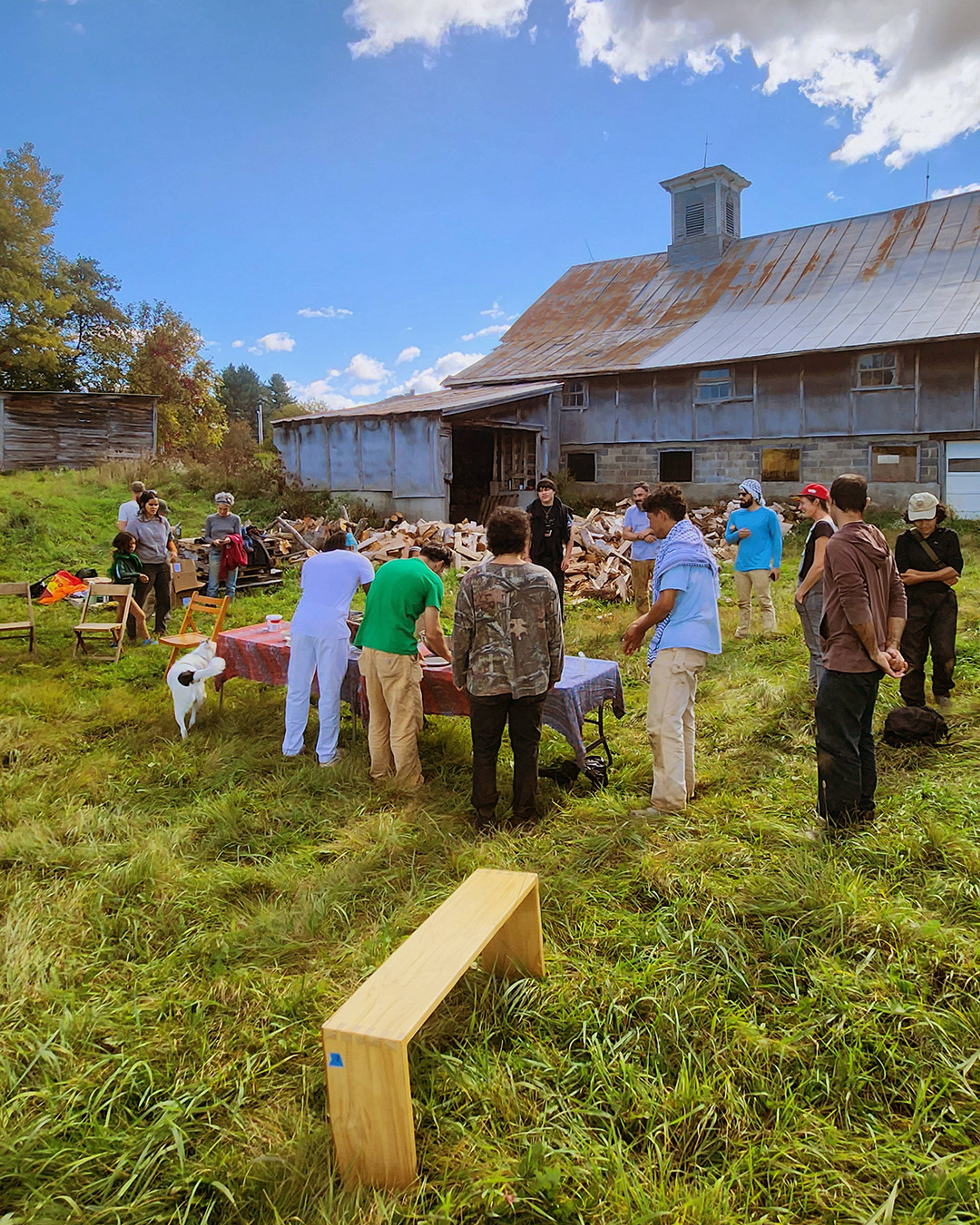
DAWN LAND FARM
Barre, Vermont
Grant: $15,000
With support from Farm Fund, Dawn Land Farm in Barre, Vermont, is advancing its mission to train BIPOC farmers and scale ecological food production.
“Infrastructure and equipment are near-impossible to acquire for new farmers, especially BIPOC farmers who’ve already faced barriers to land access. This grant brings us a huge step closer to realising the farm’s full potential.”
Co-owners Amber and tanamá will use the funding to purchase an Imants 27sx spader - a key soil health tool - and provide stipends for their BIPOC apprenticeship programme. This strengthens both farm operations and their vision for a more just food system.
Together, Amber and tanamá bring over 20 years of combined experience and are creating a new farming model rooted in agroecology, food sovereignty, and collective resilience. tanamá holds degrees and certifications from UC Davis, UC Berkeley, and the University of Missouri, with deep expertise in climate-resilient agroecology and work with movements like La Via Campesina. Amber, a Forbes 30 Under 30 honoree with a Masters in Human Ecology, brings experience in food justice, organising, and cultural education through flowers.
In 2023, they began restoring 86 acres using cover cropping and minimal tillage. The spader will help scale this regenerative work, reducing bed prep time by 40%, fuel use by 30%, and increasing production from 5,000 to 30,000 pounds by year three.
“The spader preserves soil life while improving efficiency. It lets us focus on what really matters – training, seed saving, and cultural crops.”
$5,000 of the grant will fund stipends for three BIPOC apprentices in Vermont’s first structured BIPOC farmer training programme. The programme includes full-season, hands-on training in regenerative practices, cultural mentorship, bilingual materials, and partnerships with Rural Vermont and La Via Campesina.
Dawn Land Farm blends ecological restoration with economic sustainability through a CSA, farm stand, flowers, and workshops. By year four, they aim for a debt-to-asset ratio under 30%, supported by equipment investments, crop diversity, and partnerships.
Amber and tanamá are building more than a farm - they’re reshaping Vermont’s food landscape through education, youth programmes, equipment sharing, and research.
“This isn’t just about our farm. It’s about proving that small-scale, culturally rooted farming can be a powerful force for transformation.”
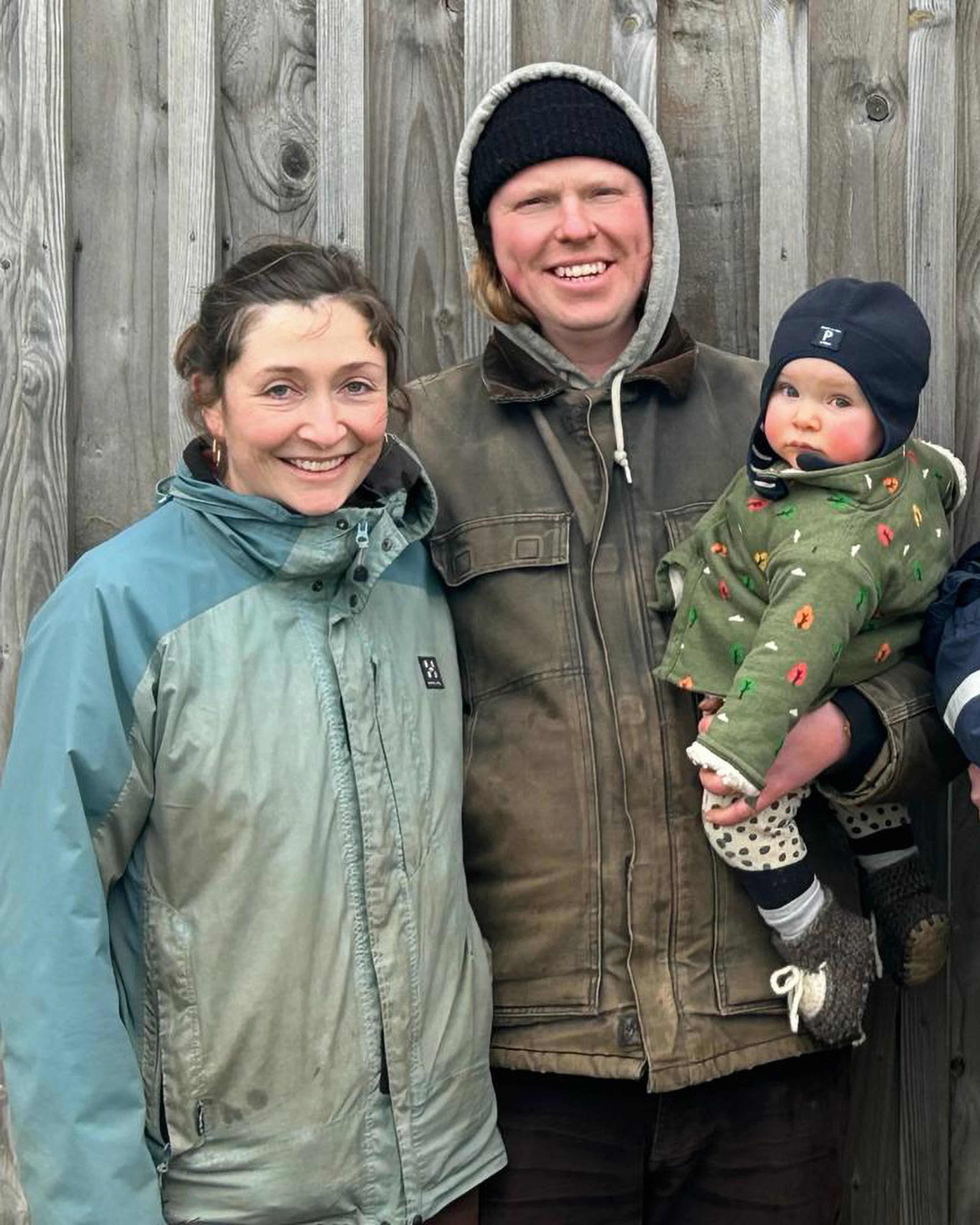
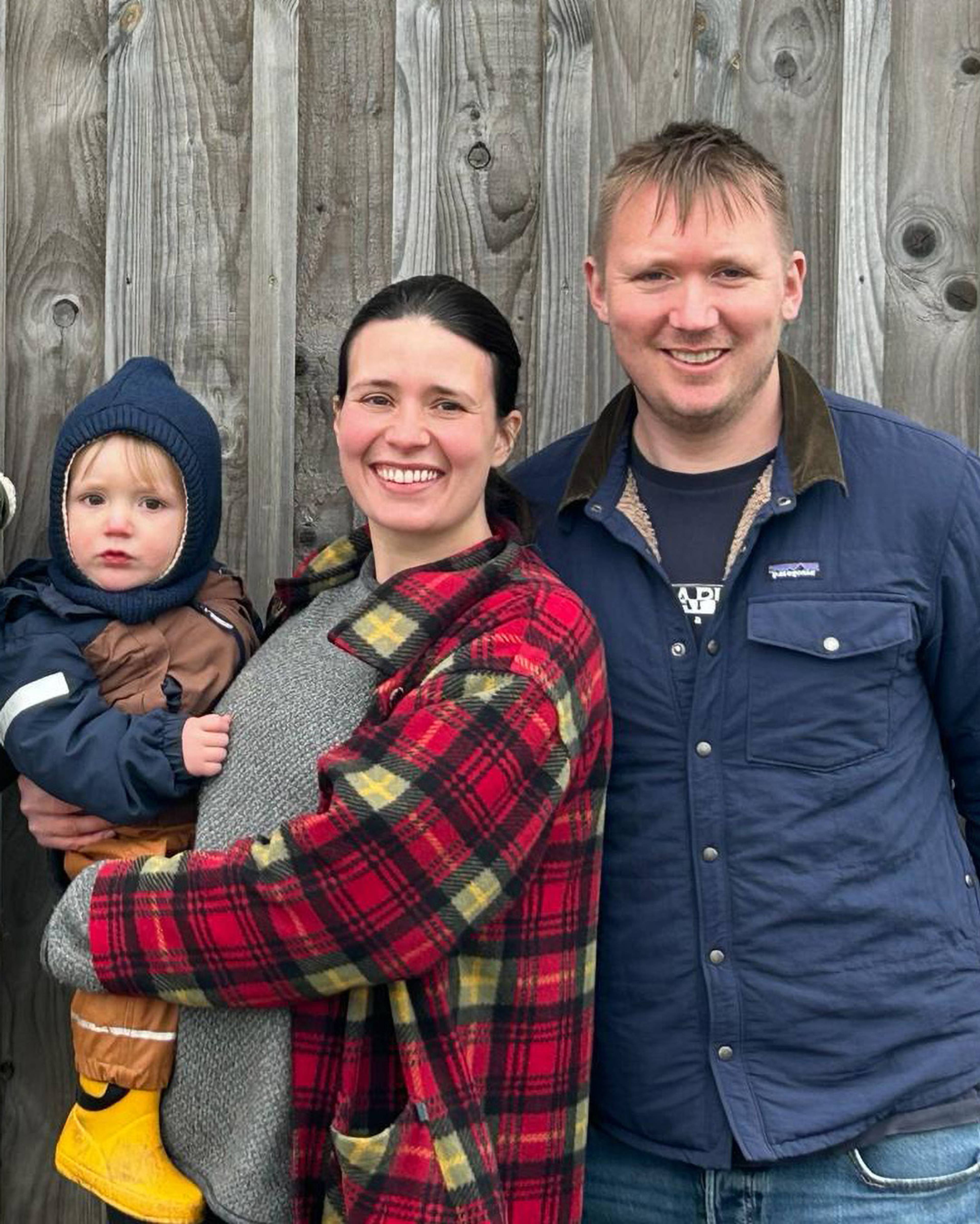
EAST NEUK MARKET GARDEN
Fife, Scotland
Grant: $15,000
East Neuk Market Garden began selling vegetables in 2019 after Connie and Tom started renting land on the Balcaskie Estate near St Monans in Fife. Their grant will support the scale-up of seed production by funding essential processing equipment and infrastructure, making the venture financially viable. It will also enable them to run educational workshops, spreading knowledge about seed saving and encouraging others to embrace seed sovereignty.
Their journey into farming began WWOOFing across Europe in 2017, followed by work at an organic farm in 2018. Connie previously led food-growing projects in London, establishing 15 community gardens. Tom’s passion was sparked by agroecology and food sovereignty. They founded the farm as a CSA and also supply local restaurants. By 2023, they supported an 80-member CSA and 12 wholesale customers.
In 2024, they partnered with Falkland Kitchen Farm - a five acre organic farm run by Nat and Bryde who began growing in 2014. Since this new collaboration the team now provide weekly veg boxes to 170 households. This year, Connie, Tom, Nat and Bryde have consolidated their operation onto the one site at East Neuk Market Garden and are now moving towards becoming a workers’ cooperative. They aim to empower staff through shared ownership and diversify into seed production – deepening their commitment to seed sovereignty.
Seed growing is central to their ethos. “Growing seed in a marginal climate exposes the weaknesses and lack of climatic adaptation in our seed supply,” they explain. Seed crops, which stay in the ground longer, enrich the soil and support long-term biodiversity. This complements their minimum tillage approach and enhances ecological regeneration.
Seed stewardship reconnects communities with food heritage. “Seeds and humans have co-evolved… seed stewardship in the UK has become a lost art.” They work with the Gaia Foundation’s Seed Sovereignty Programme to deliver training and raise awareness about open-pollinated, locally adapted seed. They also grow seed on contract for UK companies like The Real Seed Company and Seeds of Scotland, helping revive Scottish varieties from gene banks and local collections.
Seed crops benefit biodiversity, offering forage for pollinators and genetic diversity crucial for climate resilience. Seed production also brings financial stability, being less labour-intensive and supporting year-round employment.
As a cooperative, the farm aims to build stronger community ties and promote sustainable, small-scale farming.
“We hope to inspire others to do the same, and thus increase the amount of local open pollinated seed being produced here in the UK. The more people there are doing this important work effectively, the more we can actively challenge the current industrial farming system.”
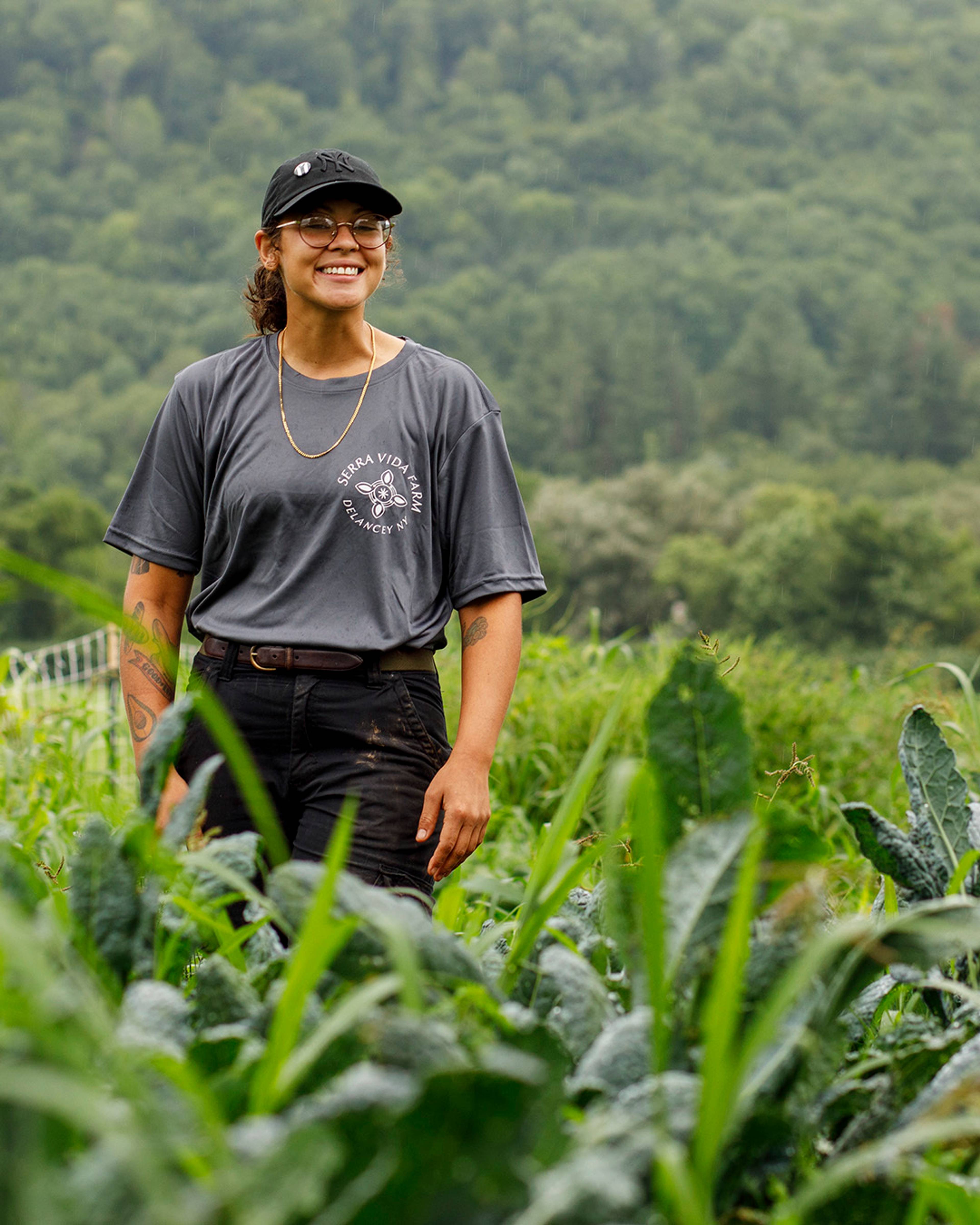
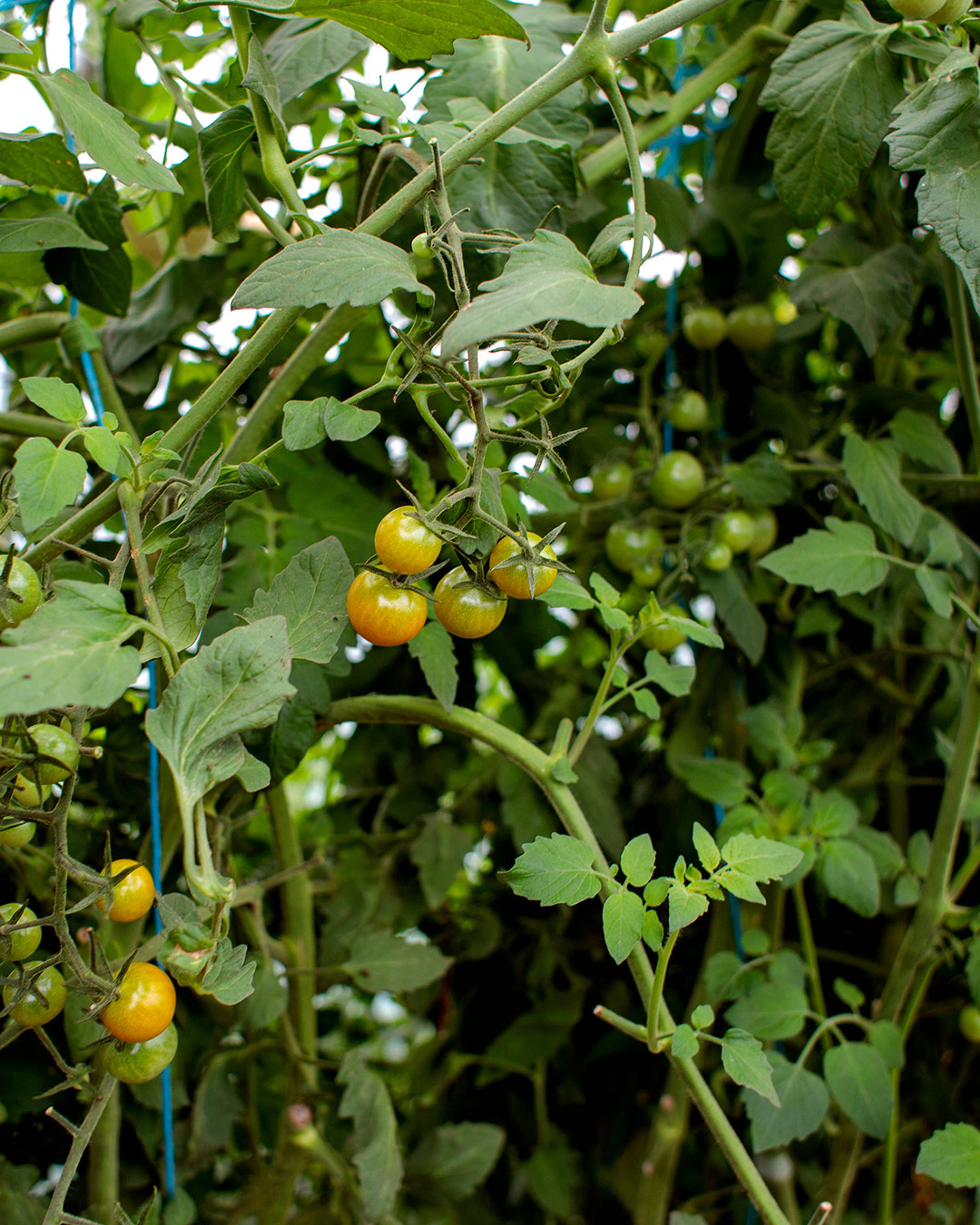
serra vida farm
Delaware County, New York
Grant: $15,000
Serra Vida Farm in Delancey, Delaware County, New York, is on the cusp of critical growth. With support from Farm Fund, founder, Sea, will build an enclosed wash pack structure and an 8x8ft cold storage unit, creating essential infrastructure to safely process and store thousands of pounds of culturally relevant produce.
“This investment is essential to expand our impact across diversified markets while maintaining high standards for produce safety, freshness, and accessibility.”
The farm’s story is rooted in memory, migration, and community resilience. “My journey into farming is a tapestry woven from memories, traditions, and a profound connection to the communities that raised me.” It began in Sea’s Abuela Maria’s kitchen in the Bronx, where she learned that food is more than sustenance, it’s history.
That legacy evolved into a commitment to food justice. Through Farm School NYC and Bronx-based mutual aid, Sea saw the hunger for food that nourishes identity. “The communities that raised me… were facing hunger not just for any food, but for food that truly spoke to who we are.” This became the seed of Serra Vida “a farm where the land and its abundance could flow directly to the communities that needed it most.”
In its first season, the farm distributed nearly 10,000 pounds of fresh produce to partners like New Roots Community Farm and Ujamaa Community Garden.
Serra Vida, meaning “barter exchange of life”, is built on five guiding principles: soil health, cultural identity, biodiversity, accessible scale, and education. Regenerative practices like cover cropping, composting, and crop rotation ensure long-term fertility. Biodiversity is championed through native planting and partnerships with groups like The Forest Exchange. Workshops at West Branch Commons connect these principles to community knowledge on land access, conservation, and sustainable practices.
Though currently 1.5 acres, expanding to 2.5, the farm is a powerful model of what’s possible on a micro scale. With the new infrastructure, Serra Vida will grow and store more food for communities in both Delaware County and the Bronx, increase efficiency, and scale impact, while preserving its deep cultural and ecological values.
“At Serra vida Farm, we are sowing seeds of culture, history, and community, one season at a time.”
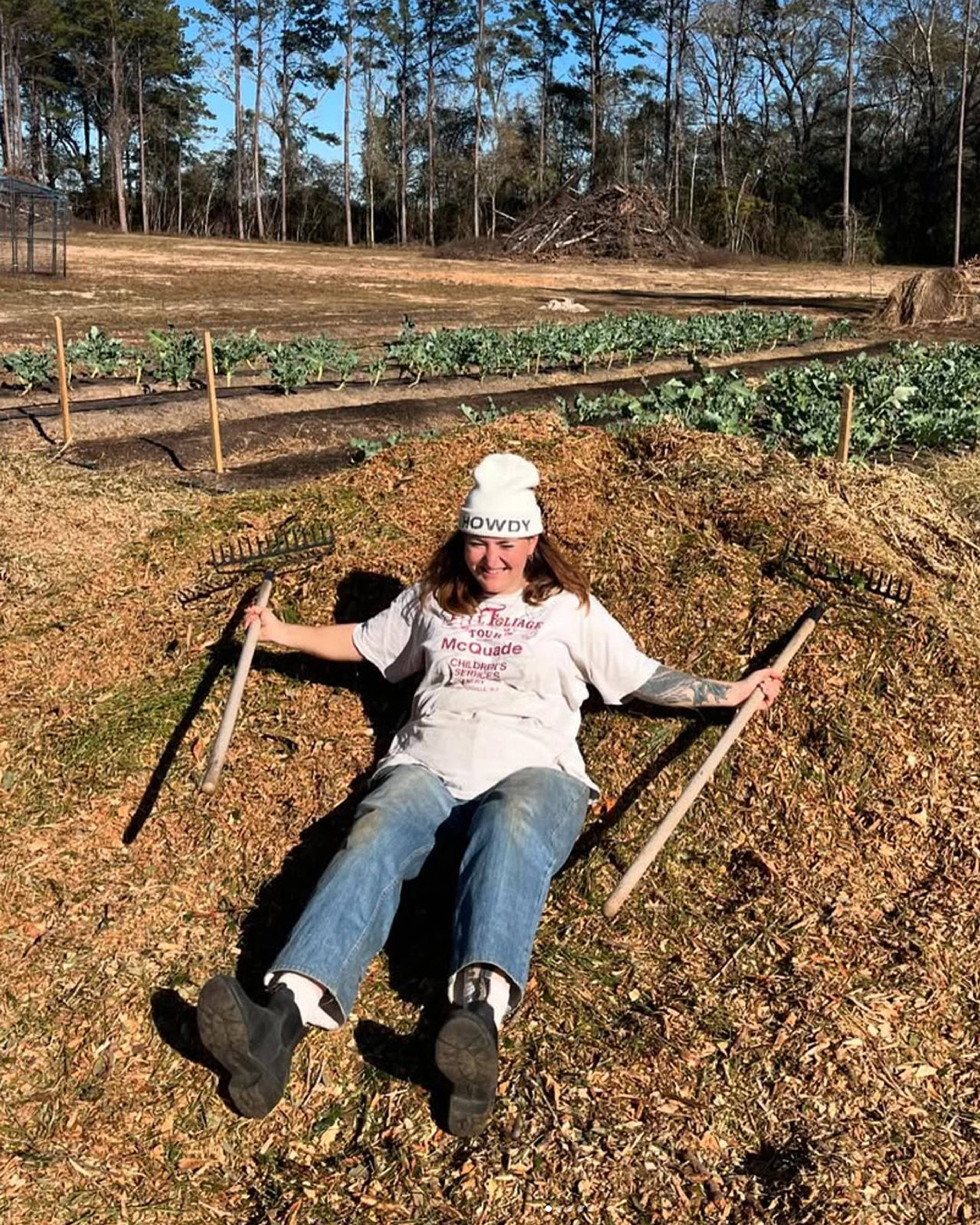
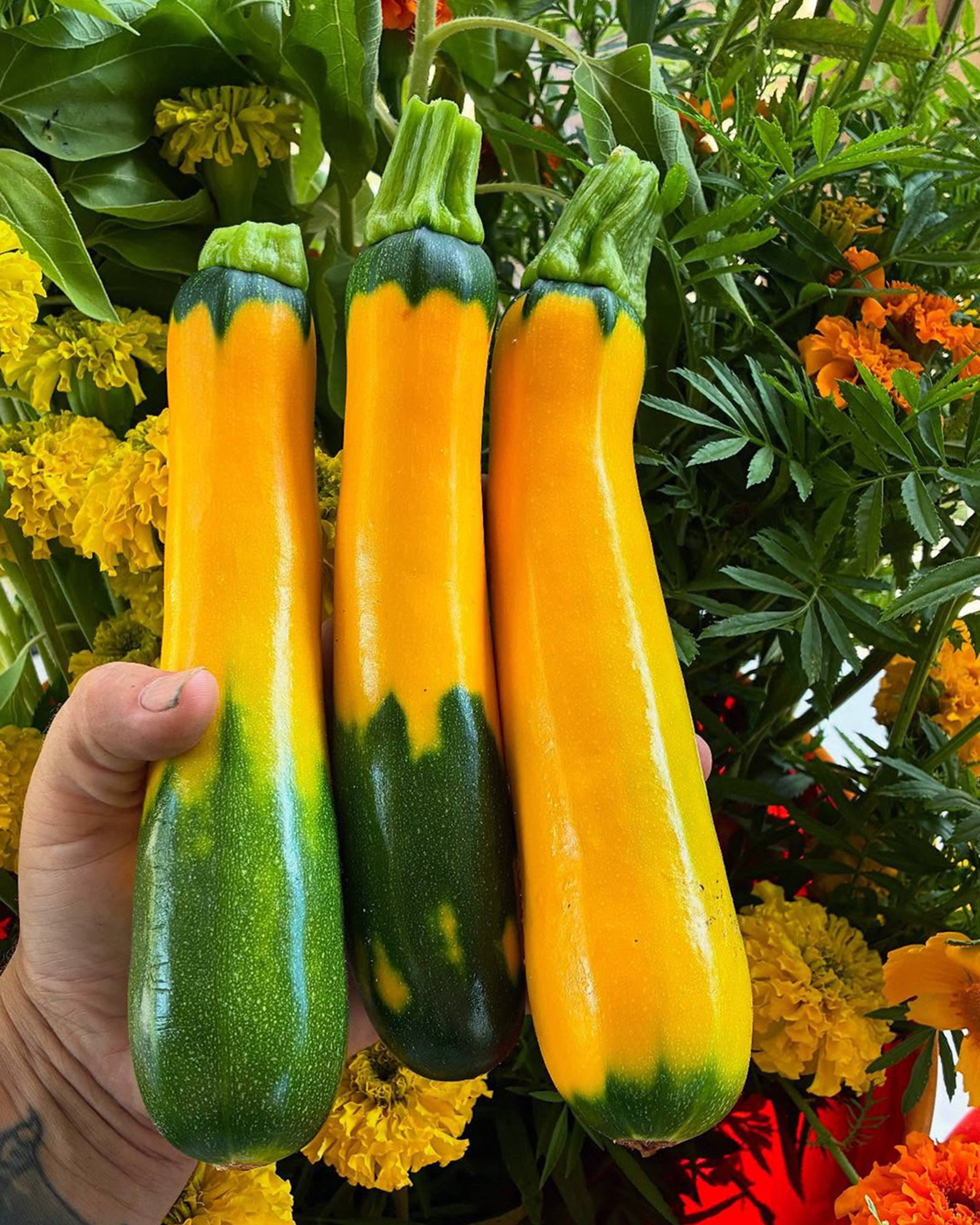
FAT CAT FARM
Poplarville, Mississippi
Grant: $8,000
Estelle is the founder of Fat Cat Farm in Poplarville, Mississippi – a 29-year-old farmer working to build a community-driven agricultural future in the Deep South.
With support from Farm Fund, Estelle plans to purchase a commercial-grade bean sheller and vacuum packaging equipment to create a community-accessible bean shelling hub. This will help Fat Cat Farm scale up fresh and dried bean production while offering essential processing infrastructure to other Gulf South farmers. The goal is to turn nitrogen-fixing cover crops into profitable, culturally significant staples.
“Having access to a sheller would transform not only my farm, but dozens of others. And when one farm succeeds in our community, we all succeed. We’re building something much bigger than beans – this is about self-sufficiency, cultural pride, and a sustainable future for Southern agriculture.”
Estelle began farming after working as a specialty produce buyer in NYC, where she saw the power of robust local food systems. Returning South, she set out to build regionally adapted, restaurant-connected agriculture, something she saw thrive in the Northeast but found lacking in Louisiana and Mississippi.
In just 3.5 years, Fat Cat Farm has become a key supplier to 14 New Orleans restaurants and a regular at the city’s largest farmers market. Estelle breeds and adapts specialty crops for the Deep South’s extreme climate, with a focus on beans like cowpeas, soybeans, and limas. Beans are central to her work for both their soil-healing properties and cultural relevance, especially in dishes like New Orleans’ Monday night red beans and rice.
Without a sheller, however, expanding production isn’t viable as hand shelling is too slow. A machine would allow the farm to triple output, reach more restaurants, create shelf-stable products, and develop value-added items like miso and natto. It would also enable seed saving and preserve heirloom varieties. The shared sheller will help other farmers adopt sustainable practices, as beans improve soil fertility and reduce the need for synthetic fertilisers.
With this grant, she hopes to lead by example and help others access new income during the summer, when many crops fail. Long-term, she envisions a regional bean economy rooted in biodiversity, resilience, and cultural pride.
Latest Stories
See allWe exist to fix the food system.
People are more cut off from the origins of their food than ever. This makes flavour, nutrition and farming practices that protect the planet, almost impossible to find.
By working directly with growers, we create a more sustainable way forward for farming. By giving everyone the tools to understand the power of our food choices, we empower everybody to become drivers of change.
Now is the time for action. Join the food system revolution.

Go beyond four seasons
Each fruit and vegetable has its own season, with subtle shifts which happen every day. Follow their microseasons to unlock flavour at every stage.
WHAT’S IN SEASON?

Know where your food comes from
We know the name of the people behind everything we source. Recognise their growing artistry to find out exactly where your food comes from (and why that matters).
MEET THE GROWERS

Make your diet diverse
Our growers work with varieties chosen for quality and nutrition, not yield. By selecting their crops you keep heritage seeds in play, add to ecosystem biodiversity and preserve unique flavours.
PEAK SEASON BOX
United Kingdom
© 2026 Natoora Ltd.
